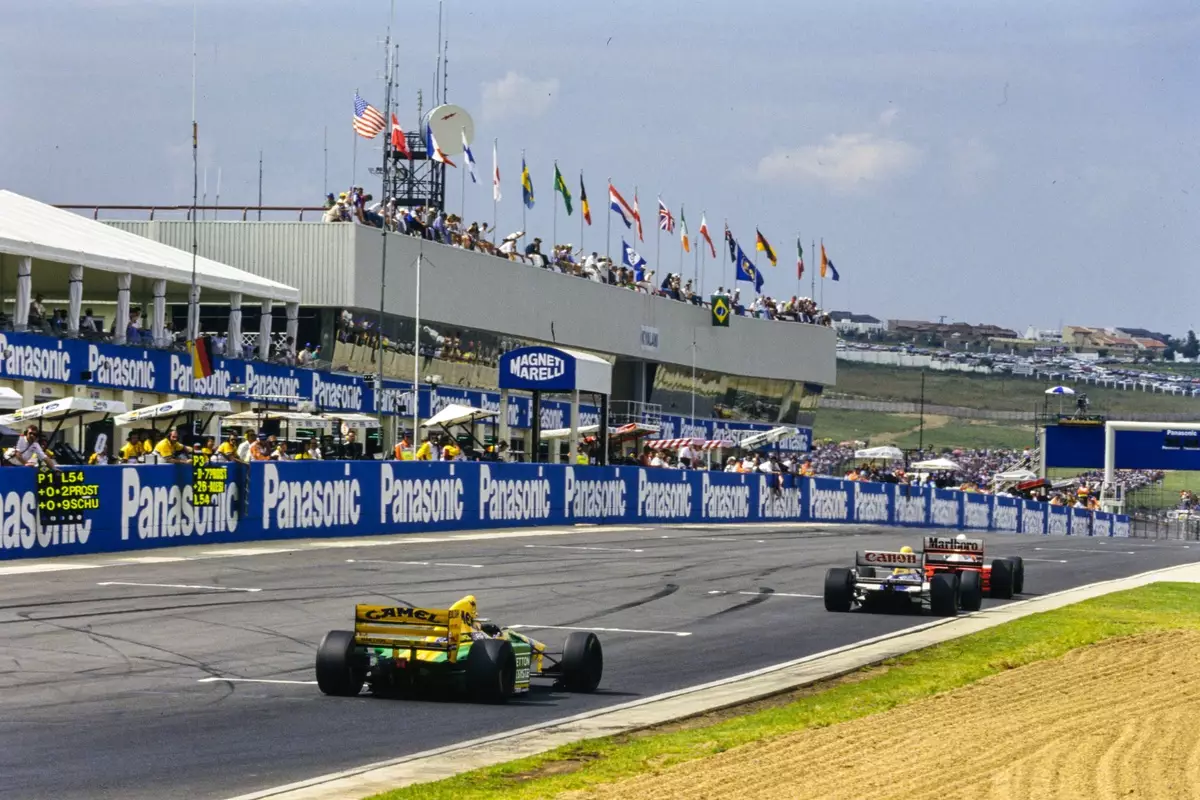The dream of hosting a Formula 1 Grand Prix in South Africa is reigniting enthusiasm among motorsport fans and officials alike. With the South African government breathing new life into its bid for the race, a significant opportunity arises to restore the country’s long-lost legacy in competitive motorsport. This article explores the motivations behind the bid, the prospects of various hosting venues, and the implications for South African sport and tourism.
For over 30 years, South Africa has been absent from the Formula 1 calendar, last hosting a race in 1993 at Kyalami Circuit. This longstanding hiatus is about to be challenged, as the government recently extended the deadline for Expressions of Interest for potential hosts of the race. Following unsuccessful attempts to revitalize this historic event, the Ministry of Sport, Arts and Culture has mandated a Bid Steering Committee to lead the charge in soliciting new proposals. With the original deadline for bids extended to March 18, 2025, interested parties now have a more ample timeframe to craft compelling submissions.
The call for bids highlights not only Kyalami’s potential revival but also presents alternative plans, such as a street circuit in the stunning coastal city of Cape Town. This proposed 5.7 km track is designed to weave around the famous waterfront and the DHL Stadium, echoing the success of the recent one-off Formula E event in 2023. The vision for a purpose-built circuit on the outskirts of the city also remains a viable contender, reflecting diverse strategies to secure a coveted slot in the F1 lineup.
The South African government, under the leadership of Sports Minister Gayton McKenzie, recognizes that hosting an F1 Grand Prix could significantly bolster the nation’s economy through tourism and global exposure. McKenzie has actively engaged with high-ranking officials from Formula 1, including exploratory discussions with CEO Stefano Domenicali. His passionate assertions that the race is “going to happen” signal a strong commitment from the government to make this vision a reality.
In an official statement, McKenzie emphasized the importance of a transparent and competitive bidding process, further encouraging stakeholders to present well-structured proposals. This commitment not only reflects the government’s aspirations for international motorsport but also underscores a broader strategy aimed at raising South Africa’s profile as a premier global sporting destination.
Despite the optimism surrounding the bid, numerous challenges loom on the horizon. The original timetable for a potential return by 2026 is ambitious, especially considering the increasing saturation of the F1 calendar, with slots being keenly contested among various countries. The prospect of hosting a race by 2027 may be equally difficult but highlights the urgency and competitive nature of securing a foothold in the motorsport arena.
Additionally, South Africa is not alone in its aspirations for hosting F1 races. African nations, such as Rwanda, are also throwing their hats into the ring, proposing designs for circuits in Kigali, while countries in Asia, such as Thailand and South Korea, are considered strong contenders for future races. With multiple stakeholders vying for limited opportunities, South Africa must not only present a sustainable and attractive proposition but must also navigate international competition effectively.
As South Africa embarks on this ambitious endeavor, the implications extend beyond merely hosting a race. A successful bid could lead to a cultural renaissance around motorsports in the nation, inspiring the next generation of engineers, race enthusiasts, and professional drivers. By reinvigorating interest in Formula 1, a broader economic impact for tourism and local businesses could also unfold.
The South African government’s renewed push to bring Formula 1 back to its shores represents a blend of ambition and hope. With renewed deadlines and exciting venue possibilities, the excitement among fans and stakeholders builds. The road to a Grand Prix is laden with challenges, but the potential rewards for South Africa—culturally, economically, and globally—are indeed monumental. As the nation prepares its bid, it stands on the brink of a transformative chapter in its motorsport history.

